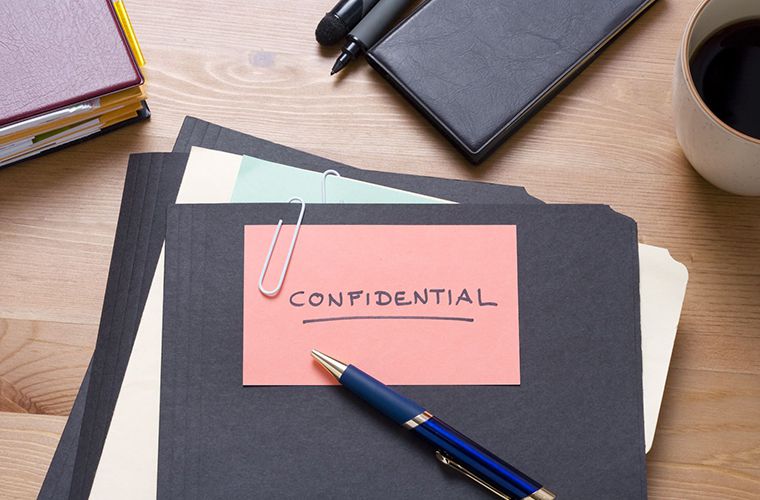
TrustWell’s Quarterly Market Review: Q2 2021
July 1, 2021
Financial Perks of Being a Costco Member
September 1, 2021By Chris Daunhauer
When I was a boy, I sometimes asked my grandfather to tell me stories from his time in the Pacific in WW2. On one of those occasions, I asked him if he still remembered his personal “serial number” and he had no trouble saying it, even 40+ years after the war and his discharge from the Army. When I joined the Army myself in 1987, I was disappointed to learn that recruits like me were no longer assigned serial numbers. We were told the Army used our social security numbers instead. My SSN was written and typed on many hundreds of different forms over my 3+ years of service. It was printed on my military ID card and stamped into my metal dog tags. I even (following orders) wrote it in indelible ink on all of my clothing and on much of my assigned gear to help everyone know whose those items were.
Our military has changed its policy on SSNs, but the change is relatively recent. Not until the mid-2000s did the Department of Defense stop including a service member’s SSN on his or her ID card and dog tags. Since that change, each service member has been issued a 10-digit “serial number” (like my grandfather’s in the early 40s) that is unrelated to his or her SSN. Times change; and sometimes for the better!
But even with increased awareness by most Americans of the sensitive nature of SSNs, identity theft continues to grow. And this is true even though most everyone has a friend or relative who has been a victim of some form of ID theft.
A dishonest person in possession of your SSN has a key component of your identity, and can use your number (in combination with other info of yours) to take out loans and run up bills under your name without your permission. Often you don’t know until years later that your identity has been stolen, and the first clue is often a call from an angry creditor that you don’t recognize demanding payment on an account in your name that you never opened.
Improvements in technology are making things increasingly tough for scammers, but those scammers are equally dedicated and smart, and they’re working just as hard to develop new methods and find new vulnerabilities. Because it’s almost impossible to steal someone’s identity without knowing his or her SSN, one of the best things you can to reduce your risk of ID theft is to keep your SSN confidential.
The Social Security Administration website has helpful information on this topic. And it warns that scammers can get your personal information (including your SSN) in lots of ways:
- Stealing your wallet or purse, or your inbound or outbound mail, or any pre-approved credit card offers coming to you. They can even steal your tax return.
- Stealing (intercepting) personal information that you provide or receive from unsecured and fake websites, employment or payroll records, and personal information they might find inside your home while doing some work there.
- Sifting through your household trash, or the trash at your employer or your business, or even the trash that’s collected for your neighborhood or city to find mail or bills that you’ve tossed out.
- Buying personal information about you from dishonest employees who work for the otherwise legitimate companies you do business with.
- Tricking you into giving it to them by calling you and impersonating someone who has a valid need for your personal information.
- Creating “spoof” websites or “phishing” emails that look very much like legitimate ones to fool you into entering or sending personal info that the scammers want.
Here’s some changes of habit that can make things harder for scammers trying to steal your confidential information:
- First, stop carrying your SS card or papers with your SSN on them in your purse or wallet. You’ll always have to carry a driver’s license or other ID, of course, but don’t keep anything with lots of personal information on it with you or in your luggage or car unless absolutely necessary.
- Second, stop giving out your SSN just because someone asks nicely for it. Their “need” for your SSN is not always legitimate. Be skeptical of anyone or any business who wants your SSN who is not your employer, or your bank or other lender, or your landlord, or a government agency or a credit bureau. This is especially true if you did not initiate the conversation.
- Opt out at every opportunity. Just say no to unsolicited requests for your confidential information. There’s rarely a good reason why merchants you do business with would need your driver’s license number or your SSN in their computer systems. Ask why that info is needed. And ask if you can provide some alternate form of identifier for their system. If the merchant persists, take your business elsewhere or give a bogus number.
- Freeze your credit files.
- Enable a password on your smart phone so anyone who steals it or finds it left behind cannot easily learn lots about you.
- Don’t use unsecured networks. Don’t put sensitive info in text messages. Turn off your phone’s Wi-Fi and Bluetooth when you’re not using them. And turn your phone completely off once per week.
- Use strong passwords for your online commerce websites, and consider some form of multi-factor authentication for the especially sensitive banking, credit, and brokerage accounts that you access via the web.
- Check your own credit reports once in a while (you can do this for free) and look carefully at the account statements and bills you receive. Make sure that transaction you see in those documents are things you did on purpose and in the correct amount, and that your correct mailing address is listed on those statements.
- Consider installing anti-virus software on your computer, and a good pop-up blocker. When in doubt, hang up or log off and contact the businesses by phone using the number or URL you were given when you when you first opened the account.
My grandfather has long since passed. He missed the advent of personal computing, smart phones, the internet, databases, e-commerce, online banking, the cloud, Wi-Fi, self-driving cars, GPS, etc. I think he would be amazed at the conveniences of today, but he’d be skeptical that all of what we have now is better in every way than the older technologies he knew and used. He would be delighted, no doubt, to know that the Army went back to issuing serial numbers like the one they gave him in 1942.




